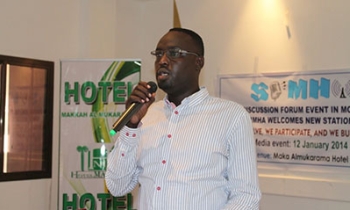The case against Scooter Libby is up in the air, but the case against the press is solid.
Special counsel Patrick Fitzgerald indicted I. Lewis "Scooter" Libby Jr. on criminal charges, including obstruction of justice, making a false statement and perjury in the CIA leak investigation. The press indicted itself on grounds of coziness, self-interest and dishonesty.
So far, Plamegate - the investigation into the leaking of the name of CIA agent Valerie Plame Wilson - is revealing uncomfortable truths about the media, including icons like The Washington Post's Bob Woodward.
In the course of writing a book, Woodward learned two years ago from a government official that Wilson was a CIA agent. He did not tell his newspaper, an omission for which he this week apologized. He also belittled Fitzgerald's investigation, despite an obvious conflict of interest. The legendary journalist who inspired reporters to challenge the power structure is now an official creature of that power structure.
Judith Miller of The New York Times lost her job over a similar scenario. She didn't tell her bosses what she knew about Wilson and when she knew it. Miller testified she could not remember the source. But Libby figured in the storyline.
The difference in career outcomes for Woodward and Miller is a lot like high school, where the popular always prevail over the unpopular and less cool. Woodward, forever basking in the afterglow of Watergate, is backed by his bosses. Miller, whose reporting on WMDs in Iraq turned out to be wrong, was not backed by bosses who gladly published her stories.
Miller is "Miss Run Amok." Woodward is a media bigfoot. They both let their newspapers down, and readers, too. Miller chose to forget that a leak from a "source" demands as much skepticism as any politician's press release. Woodward chose to ignore that he owed his bosses an explanation of what he knew, when he knew it, and from where it came.
In an interview with The New York Times, Benjamin C. Bradlee, the Post's top editor during Watergate, defended Woodward and said "Outside the Beltway, I feel this story has very minor interest." On the contrary, beyond the Beltway, this story confirms readers' cynicism about journalists. To the reader, there is no distinction between Libby's alleged lack of truthfulness and that of any journalist.
In Plamegate, people see the sausage-making; journalists are part of the establishment they cover. Their "sources" are government officials who use them to put out negative information about a political adversary. That is very different from protecting a whistleblower who is revealing secrets the public should know. And it is dramatically different from Woodward's and Carl Bernstein's role in uncovering the Watergate scandal. Then, the two dogged Post reporters worked to reveal the crimes of the Nixon administration.
In Plamegate, administration sources tried to use the press to spread the word about Valerie Plame Wilson and discredit her husband, Joseph Wilson, an administration critic. Is her identity a scoop? Or is spreading it a dirty trick?
The symbiotic relationship between press and political establishment is a fact of life. Pick up any newspaper, and it is not hard to figure out who is entangled with whom. Sometimes these relationships lead to important news. Sometimes they lead to disclosures whose sole purpose is to undercut an opponent. Readers know the difference, which could explain why fewer of them buy newspapers or trust them.
Where does Plamegate end? In a document filed in court last Friday, Fitzgerald said "the investigation is continuing" and that it "will involve proceedings before a different grand jury than the grand jury which returned the indictment." That isn't good news for the Bush administration, which dodged disaster when Karl Rove was not indicted along with Libby.
The media love a scandal. A Rove indictment would be entertaining and Cheney in the hot seat would burn up the blogs. But this time all those Watergate-era phrases - from "tip of the iceberg" and "smoking gun" to "what did he know and when did he know it?" - are coming back at the press, not just the president's men.
Contact Joan Vennochi at vennochi@globe.com.









